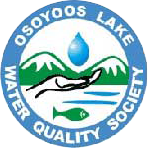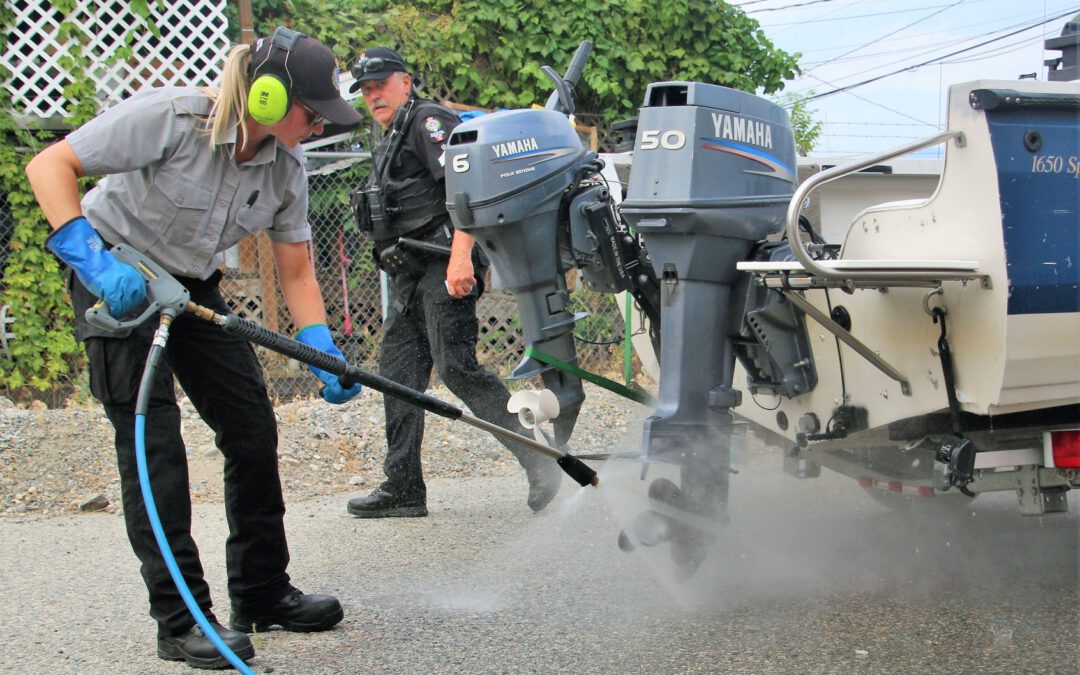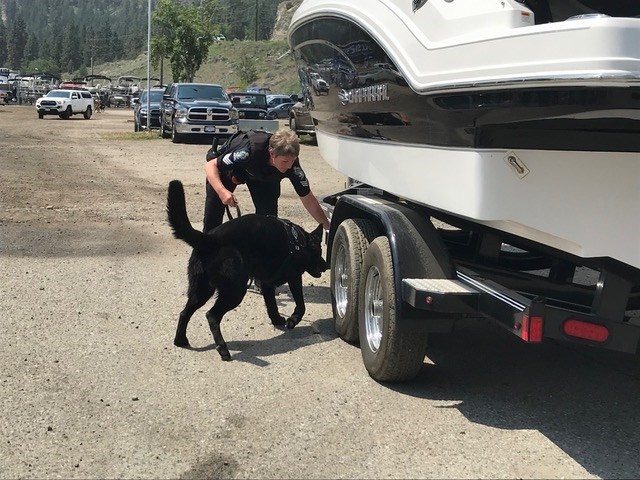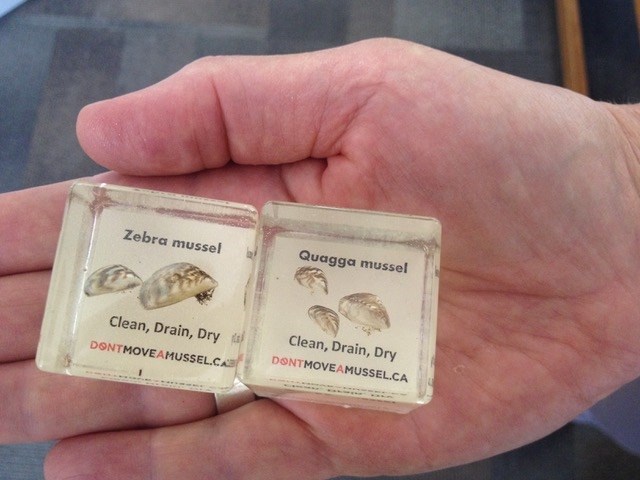Kelowna News
Half the boats carrying invasive mussels into BC heading to Thompson-Okanagan
Out of eight boats found to be carrying invasive mussels into BC so far this year, three were headed to the Okanagan and one to the Thompson-Nicola area.
That’s up slightly from the 47% detected in the last two years and a big jump from the 18% headed to the region in 2019.
The zebra and quagga mussels can live out of water for up to a month and once introduced into lakes they can spread fast and cause major damage. And, while the number of boats detected is small, the impact of them getting in lakes or rivers is huge.
“We know it will only take one infested watercraft launching in local waters to set off a chain of catastrophic events,” says an Okanagan Basin Water Board (OBWB) news release. “If allowed to enter into local waters, the mussels will put drinking water at risk, the local fishery and ecosystem will be upended, sandy beaches will be un-walkable without shoes.”
The eight boats amounted to 10% of the high risk watercraft that were inspected between April and mid-July. The other three boats were headed to the Lower Mainland (one) or unconfirmed destinations.
The discoveries came despite a drastic reduction in inspections. There was a 61% drop in the number of boats inspected from the 2019 peak to 2022.
That’s due not only to budget cuts, but increasing difficulties in recruiting and retaining staff to do the work.
“These cuts are especially troubling, given the province’s own economic analysis that shows an annual cost of a mussel infestation in BC would range from $64 to $129 million annually,” the news release says. “This cost estimate does not include impacts to aquatic ecosystems and fish populations.”
The OBWB, therefore, is calling on the government for increased funding and other actions.
First up is a call to restore funding to the 2019 level, which would be the equivalent of $4.04 million in today’s dollars and to tie that funding to inflation going forward.
In 2019, there were 12 inspection stations and 64 staff. In 2022, those numbers were cut in half.
Hiring staff into temporary seasonal jobs is difficult as is finding housing, often in remote areas during peak tourism and fire season.
“This may require increasing pay levels to attract qualified candidates,” the news release says.
Legislative changes are also needed.
Since 2019, the water board has been lobbying the provincial government to pass “pull the plug” legislations, requiring all boats to remove their drain plugs before hitting the road.
All other western provinces have had such legislation in place since 2019.
The mussels have not yet been found in waterways in Alberta or Saskatchewan, but are firmly established further east in Canada and in the northwestern U.S.
With new technology it’s now easier to analyze travel patterns and water chemistry to determine areas at greatest rick of infestation. That water board, therefore, wants the province to use those tools to to better plan ways to combat the mussels.




